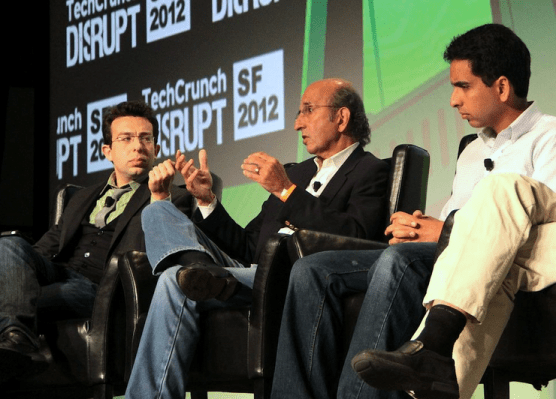Today at TechCrunch Disrupt San Francisco, TC’s own Greg Ferenstein was joined on stage by Khan Academy founder Sal Khan, former Chancellor of New York Public Schools and an EVP at News Corp., as well as Udacity co-founder Sebastian Thrun. The panel talked about the future of education and how the intersection of technology and learning will change the space. For edtech entrepreneurs, one point stuck out that we thought was worth highlighting.
For starters, Klein said that he believes the system itself is fundamentally misunderstanding what incentivizes teachers — that there’s an impression that the primary motivating factor for teachers is money. Or finger painting. But teachers want to be empowered: That is their motivator. They want to be more effective and excited about the process. So, when it comes to the intersection of education and technology, simply putting a computer in front of a student, of a child, doesn’t make their lives any easier, or education any better.
The key, Klein said, for developers, engineers and builders focused on the education space is to build a product with both the student and the teacher in mind — be sure to isolate the specific parts of your product or technology that have a value-add for teachers. “A kid who’s bored, isn’t learning, and you see students playing games on iPhones all the time.” It’s not just that this is inherently an unproductive behavior in class (or during teacher lectures), but that it’s indicating the potential builders now have to change the way teachers instruct and kids learn.
Kids want to feel engaged, and teachers want to feel empowered. Again, this may all sound boring, straightforward, and obvious. But, people, education has been largely the same for 1K years, the classical education system the same for two years, it’s calcified, and things are just really beginning to change.
But with all these new tools and all this new potential, offering differentiated instruction, flipped classrooms, blended learning — these aren’t just buzzwords to be regurgitated by nerdy programmers. These are words that have very, very significant meanings within this context, and until products emerge that truly empower teachers (Khan has largely missed in this regard) and helps kids feel engaged (won big in this way), only then will we really begin to truly change education.
The question can’t be about replacing teachers (or replacing doctors) either, and while monetizing and standardizing is a natural part of the evolution — you have to empower. Maybe I just drank the Kool-Aid too aggressively during Dorsey’s talk today, but it needs to be said.
